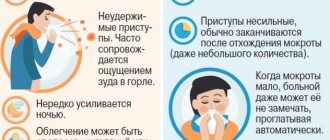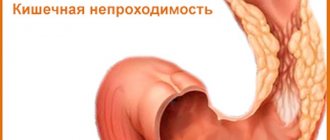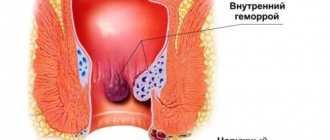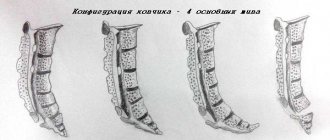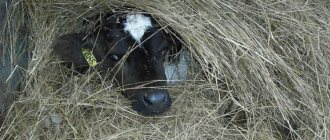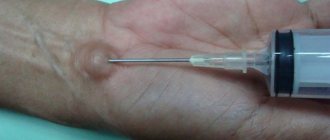Cough with gastritis
A symptom such as cough is most often associated with respiratory diseases.
Or allergies. However, doctors distinguish cough in combination with symptoms of a host of other diseases. Such a symptom as cough is most often associated with diseases of the respiratory organs. Or allergies. However, doctors identify cough in combination with symptoms of a host of other diseases.
The causes of cough are diseases of the cardiovascular system, the presence of helminthic infestations and infectious diseases. For inflammation in the gastrointestinal tract, foreign body in the esophagus, food poisoning.
To accurately determine what disease the respiratory syndrome is a sign of, you need to consider the accompanying symptoms. If there is no fever or runny nose, the cardiogram and fluorography are normal, expectorants and antitussives do not help, but at the same time you suffer from heartburn, weakness, nausea and abdominal pain, perhaps the cause is a disease of the digestive system. To make an accurate diagnosis, you need to consult a doctor who will prescribe an examination and proper treatment.
Stomach cough has different causes:
- Dry and prolonged, sometimes accompanied by nausea and vomiting, abdominal pain - indicates infection with adeno- and enterovirus infections. Localized in the digestive organs, pathogens affect the bronchi and trachea.
- Cough due to helminthic infestations and intestinal dysbiosis occurs as a reaction of the immune system to poisoning of the body by waste products of worms, bacteria and viruses.
- Respiratory syndrome with gastroesophageal reflux is provoked by the reflux of gastric juice into the esophagus. With chronic gastritis and high acidity, the muscle ring that passes food into the stomach weakens. The process is long, the acid damages and irritates the mucous membrane, resulting in a sore throat, wheezing and dry cough. Such symptoms are more often observed in people over 40 years of age, overweight, smokers or alcohol abusers.
- Various forms of gastritis can provoke a debilitating cough, depending on the secretion of gastric juice and other factors, which can develop into peptic ulcers, atrophic gastritis or cancer.
To identify the causes of cough, the patient will need to undergo examination:
- Take urine, stool and blood tests. Studies will identify or rule out infections, pathogenic bacteria and parasites, and determine the presence of Helicobacter - the probable cause of gastritis.
- Ultrasound diagnostics of the abdominal organs, which will help to find and localize pathological changes.
- Fibrogastroscopy for gastritis and ulcers. The method allows, using a flexible tube and a camera at the end, to see the condition of the mucous membranes of the stomach and esophagus, and to take epithelial cells for histological analysis.
- Determination of stomach acidity.
https://youtu.be/_pzpeVBWK1E
Folk remedies
Traditional medicine methods are successfully used in the treatment of stomach cough. They harmoniously complement basic treatment and do not require any special physical or material costs.
It is important! Folk remedies are used only as an addition to the main treatment, but in no case replace it! Review of popular tools:
- For the treatment of diseases of the gastrointestinal tract, it is useful to drink potato juice. Take the juice in the morning, 100 g before meals.
- Taking mumiyo also provides benefits. A match head of the substance is added to warm milk. You need to drink this remedy twice a day.
- Decoctions based on herbs: chamomile, plantain, sage, licorice will help normalize respiratory function and eliminate symptoms of the gastrointestinal tract.
- Treatment of the disease is supplemented with a mixture of honey and olive oil. The proportion is taken 1:2.5. It is recommended to add a couple of teaspoons of lemon juice to the mixture. Store the home remedy in the refrigerator and take a teaspoon before each meal.
In the future, folk recipes are used for preventive purposes.
Characteristic symptoms of stomach cough
If the cough is caused by impaired motility of the esophagus, it is not accompanied by typical cold symptoms - runny nose, headache, wheezing in the lungs, etc. Manifestations of the disease worsen when you eat, bend or lie down, and also after physical activity.
Cough from the stomach in adults is accompanied by:
- heartburn;
- sour belching;
- hoarseness of voice;
- white coating on the tongue;
- unpleasant taste in the mouth;
- severe sore throat;
- burning in the lower chest.
If the cough is caused by impaired motility of the esophagus, it is not accompanied by typical cold symptoms - runny nose, headache, wheezing in the lungs, etc.
With GERD and tumor diseases of the stomach, the severity of cough attacks and accompanying symptoms does not change when taking medications or food. Patients are concerned about abdominal cramps, dyspeptic disorders, and vomiting. A child's cough is often spastic in nature and is not accompanied by sputum production. With an increase in intragastric pressure, belching, seething in the intestines, and acute pain appear.
In case of intoxication of the body due to food poisoning or parasitic infections, complaints of paroxysmal unproductive cough, fatigue, dry throat, and intermittent breathing appear. Pathologies of the stomach and intestines require adequate treatment. Failure to provide assistance in a timely manner is fraught with complications - an ulcer of the esophagus or its narrowing (strictures).
Why is pathology dangerous?
Heartburn and cough are symptoms indicating impaired intestinal motility. If they appear, you should consult a doctor. Delayed treatment of gastrointestinal pathologies is fraught with serious complications:
- diaphragmatic hernia;
- stomach ulcer;
- pulmonary fibrosis;
- laryngeal cancer;
- narrowing of the esophagus.
Cough due to stomach cancer requires immediate treatment with chemotherapy and radiation therapy. Malignant tumors grow rapidly, affecting neighboring organs - the esophagus, liver, pancreas, lungs.
Gastrointestinal diseases pose a threat not only to health, but also to life. Therefore, it is impossible to ignore their manifestations - heartburn, belching, abdominal pain, cough.
Causes of cough during exacerbation of gastritis and beyond relapse
Stomach cough is a symptom that accompanies pathologies of the digestive system. In this case, the patient does not have discharge from the nasal cavity or redness in the throat, that is, the symptom is not associated with a cold. Stomach cough is accompanied by fatigue and malaise. Additional clinic depends on the underlying pathology. It is possible to establish the root cause using diagnostics. Typically, stomach cough is debilitating and causes great discomfort. Needs adequate treatment. Delayed therapy can result in complications.
Prevention
In order to prevent the occurrence of cough in diseases of the digestive system, it is necessary to promptly diagnose and treat the underlying pathology.
Thanks to this, the risk of such a symptom occurring will be minimal. In addition, the patient will be provided with the most favorable outcome.
The appearance of cough in diseases of the stomach and lower esophagus is a rare occurrence. But it causes discomfort and inconvenience for patients. If you experience an unreasonable cough after eating, you should contact a gastroenterologist to undergo examination and begin treatment.
Coughing with different types of inflammation
Gastritis is a common disease that is accompanied by a pathological process in the digestive organ. It occurs against the background of regular consumption of low-quality products, lack of diet, poor lifestyle, taking certain medications and Helicobacter pylori infection.
Cough with gastritis occurs often. There are several forms of pathology that provoke the appearance of the symptom. These include:
- chronic inflammation;
- reflux gastritis;
- ulcerative process;
- atrophic changes.
Patients often mistake the symptoms of reflux gastritis for a sore throat.
The disease is characterized by sour belching. In the acute form of the pathology, paroxysmal coughing occurs. Reflux gastritis is a pathology that is characterized by weakening of a certain sphincter. The contents of the intestine enter the digestive organ and injure its walls. Pathology is usually accompanied by increased acidity. When sick, the cough is usually dry. There is discomfort in the larynx.
Patients often mistake the symptoms of reflux gastritis for a sore throat. The disease is characterized by sour belching. In the acute form of the pathology, coughing is paroxysmal. Appears after eating food. It doesn't take long. In the chronic type, cough is observed constantly. It disappears quickly, but intensifies after eating spicy food.
With prolonged gastritis, the inflammatory process in the stomach irritates certain receptors that are responsible for coughing. The symptom appears approximately half an hour after eating. Accompanied by severe heartburn.
Ulcerative gastritis is characterized by the appearance of defects in the mucous membrane of the affected organ. The pathology provokes the appearance of heartburn, chest pain, cough and difficulty breathing. Needs immediate treatment.
The reflex may also be present when:
- infectious diseases that affect the gastrointestinal tract;
- dysbacteriosis;
- presence of foreign bodies.
The patient needs a comprehensive diagnosis, the list of which is determined by the doctor.
Cough due to gastrointestinal reflux
If the cough reflex is not accompanied by the classic manifestations of colds or infectious diseases, such as a runny nose, fever, general weakness of the body, and so on, but occurs in the absence of these accompanying symptoms, then it is likely that the cause of a symptomatic cough is a disruption of the digestive organs. There are several cause-and-effect factors that cause stomach cough. Symptoms, treatment and signs of the disease can be caused by gastroesophageal reflux disease (GERD), one of the most common chronic pathologies of the digestive system. Due to the regular release of gastric contents into the esophagus, irritation of the mucous membrane of the digestive organ occurs, which provokes cough syndrome.
Causes of gastroesophageal reflux:
- Increased intra-abdominal pressure, often found with flatulence, obesity, pregnancy, as well as with ascites as a consequence of liver cirrhosis.
- A hiatal hernia, in which part of the esophagus is displaced or falls out into the chest area. Such clinical symptoms are typical for older people.
- Duodenal ulcer.
- Increased intragastric pressure, as a result of excessive saturation with gas-forming foods and foods with a high content of animal fats.
In addition, the cause of gastroesophageal reflux can be a decrease in the tone of the sphincter apparatus, an anatomical device responsible for regulating the transition of food masses from one organ to another. In addition to the cough reflex, typical symptomatic signs of gastroesophageal reflux disease are heartburn, belching and odynophagia - pain when swallowing and when food passes through the esophagus.
Associated symptoms
Stomach cough does not constantly bother the patient. The symptom appears only when interacting with certain extraneous factors. The symptom is usually associated with food intake.
Stomach coughing occurs immediately after eating or after a short period. It intensifies when the patient takes a horizontal position and at night. The symptom cannot be eliminated using traditional cold medications. It is possible to suspect the presence of a specific pathology by paying attention to the clinical picture. A description of the violations is presented in the table.
Coughing is often caused by the presence of parasites in the body. With helminthiasis, the patient complains of a significant loss of strength, anemia and deterioration of the condition of the skin. Hair becomes brittle and dull. The nail plates are peeling. There is increased gas formation, insomnia occurs, the stomach is bloated, and there is a dry cough. The patient regularly experiences diarrhea.
All of these diseases have a similar clinical picture, so it is impossible to independently determine the root cause of stomach cough.
How to treat illness in children?
Treatment of reflux in infants, which is the most common cause of stomach cough at such an early age, is prescribed by a doctor. The drugs are selected by a specialist and prescribed in strict dosages. Giving your baby any medications without a doctor's permission is dangerous. But this does not mean that parents can sit idly by: they need to help the child cope with the accompanying symptoms of the disease.
For example, in the case of diarrhea or vomiting, it is important to constantly replenish the water and electrolyte balance in the baby’s body. Rehydron solution, which can be given to children from birth, will help to avoid dehydration, and for a strengthening effect, babies are given a little rice water.
Diagnostic measures
The doctor’s main task is to confirm the presence of gastritis, excluding other pathologies.
Stomach cough occurs in many gastrointestinal diseases. The doctor’s main task is to confirm the presence of gastritis, excluding other pathologies. Stomach cough occurs in many gastrointestinal diseases. The patient may need to undergo complex treatment to eliminate symptoms and possible complications.
The sick person is given a referral to:
- Ultrasound of the thyroid gland and blood test for hormones;
- culture from the larynx and endoscopy of the nasopharynx to exclude the possible presence of an inflammatory process;
- fluorography of the lungs with examination of the heart;
- Ultrasound of the abdominal organs;
- MRI;
- UAC;
- FGDS.
The patient must provide blood, urine and feces for testing. This is necessary to exclude infectious diseases. Thanks to such tests, it is possible to confirm or refute the presence of Helicobacter, since this is one of the main causes of gastritis.
The doctor must determine the level of acidity in the body. With inflammation it is usually increased or decreased.
The patient may be recommended additional diagnostic methods. This directly depends on the individual characteristics of the patient and the root cause of stomach cough. You cannot ignore doctor's orders.
Diagnostic methods
Making an accurate diagnosis and identifying the cause of the cough reflex is carried out by a doctor by collecting information in the anamnesis, as well as through a series of laboratory and clinical studies. Modern diagnostic methods include the following studies:
- fibrogastroscopy
- echoscopy of the peritoneal organs
- Ultrasound of the gastrointestinal tract
- X-ray of the respiratory tract
- MRI of the digestive tract
The following tests are also required:
- urine
- blood (general, biochemistry)
- feces (for eggworm, sowing tank, coprogram)
Only timely diagnosis and treatment of pathology will help give an objective assessment of the patient’s health and relieve him of coughing.
Treatment measures
Any medication is prescribed only after an accurate diagnosis has been established. The patient is prescribed:
- antibiotics;
- hydrogen pump blockers;
- antacids;
- acidin-pepsin;
- antispasmodics.
Medicines are selected depending on the form of pathology and the level of acidity. Medications are recommended to eliminate the gag reflex. Antispasmodics are used in the presence of severe pain. Antibiotics are prescribed only to those patients whose cough due to gastritis is caused by Helicobacter pylori infection. Several types of medications are recommended. The patient must be prescribed medications that ease coughing and speed up the process of mucus discharge. Therapy must be comprehensive. Treatment is combined with traditional methods. Flax seeds are highly effective. Thanks to them, the mucous membranes of the stomach are enveloped in a thin film. The natural component promotes tissue healing and prevents further damage. Indicated for any form of pathology.
The patient is recommended to drink cabbage or potato juice on an empty stomach. This unconventional method is indicated only for elevated levels of hydrochloric acid. To eliminate pain, it is advisable to drink a decoction of chamomile. The drink helps reduce inflammation.
Natural medicines by themselves are ineffective. They eliminate the symptoms, but not the root cause. Therefore, it is important to use them in combination with medications.
Getting rid of cough caused by gastritis is impossible without following nutritional recommendations. The diet is selected individually. The patient must also completely eliminate bad habits. You should eat food 5 to 7 times a day. Portions should be small.
Getting rid of cough caused by gastritis is impossible without following nutritional recommendations. The diet is selected individually
With a reduced level of acidity during an exacerbation, preference is given to meat and fish broths. If your condition improves, you should include in your diet:
- porridge;
- pureed soups;
- steamed cutlets;
- boiled chicken;
- cottage cheese.
You should forever forget about everything fatty and fried in oil. Milk is also not recommended. Soda and coffee are excluded from the diet.
With an increased level of acidity, nutrition should be gentle. All food is pre-boiled and ground. It is recommended to drink milk. Do not consume sauces, soda, strong tea or coffee. It is forbidden to eat meat, fish and mushroom broths. They must be vegetable.
If the acidity level is elevated, you should avoid confectionery and fresh baked goods. Herbal decoctions and tinctures are recommended. Coughing caused by gastritis cannot be ignored. The patient must undergo diagnostics and follow all doctor’s recommendations.
Treatment with pharmaceuticals
Cough due to heartburn, reflux disease and gastritis is treated with drugs that reduce the acidity of juice in the stomach and tone the smooth muscle of the intestine. To eliminate the unpleasant symptom, the following drugs are prescribed:
- Prokinetics (Reglan, Mosid, Cerucal) - stimulate intestinal motility and increase the tone of the lower gastric sphincter. This prevents regurgitation of gastric juice into the ENT organs and the appearance of cough.
- Antisecretory (Famotidine, Tagamet, Ranitidine) - stop excessive acid production in the stomach, heal the mucous membrane. Medicines fight the manifestations of GREB and prevent the food coma from entering the respiratory system. This eliminates coughing attacks and an unpleasant taste in the mouth.
- Sorbents (Enterosgel, Atoxil, Polysorb) – cleanse the body of toxic substances, which helps restore the functions of the stomach. Prevents intoxication and the appearance of vomiting. This reduces the risk of irritation of the mucous membranes of the ENT organs with gastric juice.
Stomach pathologies caused by the bacterium Helicobacter pylori are treated with antibiotics - Clarithromycin, Amoxicillin, Tetracycline, etc. To relieve cough in children with GERD, antitussive drugs are used - Terpinkod, Libexin, Codelac. To prevent dehydration and water-electrolyte imbalance, the child is given Humana Electrolyte, Smecta, Regidron.
Traditional methods
To reduce irritation of the gastric mucosa, it is recommended to drink 300 ml per day of a decoction from a collection of herbs - sage, chamomile, licorice, plantain.
Before treating a cough for gastrointestinal diseases with folk remedies, you must obtain a doctor's permission. Some foods and herbs increase stomach acidity, which can worsen the condition.
To eliminate stomach cough, use:
- Honey with olive oil. Mix flower honey with olive oil in equal proportions. To eliminate heartburn and manifestations of GREB, take 1 tsp. before meals three times a day.
- Potato juice. Fresh potatoes are crushed and the juice is squeezed out using gauze. For severe cough and unpleasant taste in the mouth, take 150 ml on an empty stomach once a day.
- Flaxseeds. 1 tbsp. l. seeds, pour 350 ml of water and boil for 10 minutes. 20 minutes before meals, drink 100 ml of decoction 3 times a day.
- Milk and mumiyo. Add 1/4 tsp to 1 glass of warm milk. Shilajit powder. For spasmodic cough, take twice a day - morning and evening.
To reduce irritation of the gastric mucosa, it is recommended to drink 300 ml per day of a decoction of herbs - sage, chamomile, licorice, plantain. They have an anti-inflammatory and enveloping effect, eliminating inflammation. When taken systematically, the decoction eliminates cough, heartburn, and sour belching.
Treatment methods based on the cause of the disease
Therapy for stomach cough can vary significantly depending on the factors that provoke it. Comprehensive use of medications can be combined with surgical intervention if the patient’s condition is serious.
Surgery is prescribed when an ulcer is perforated or when gastroesophageal reflux cannot be eliminated with medication.
In other cases, cough due to gastrointestinal pathologies is treated:
- Prokinetics, such as Motilak, Motilium. The drugs help restore muscle tone.
- Antacids, including Maalox, Almagel. They have enveloping properties, protecting mucous membranes from damage.
- Antisecretory drugs such as Ranitidine, Omeprazole. Reduces the amount of bile produced.
In other cases the following are shown:
- Antibiotics. Selected individually for each case. They are prescribed for infectious and viral lesions, gastritis, if it is caused by the bacterium Helicobacter pylori, and for severe dysbacteriosis.
- Sorbents such as Atoxil, activated carbon, Enterosgel. Indispensable for poisoning, after treatment of helminthic infestation, dysbiosis, viral pathologies.
- Pro-, pre- and symbiotics are indicated for dysbiosis, after antibiotic therapy and in other conditions when the intestinal microflora suffers.
- Cough remedies. Helps soften mucous membranes, eliminate sore throat and dry throat.
When treating intestinal infections, it is important to monitor the water-salt balance in order to prevent dehydration. Regidron, Smecta are useful. Electrolyte.


